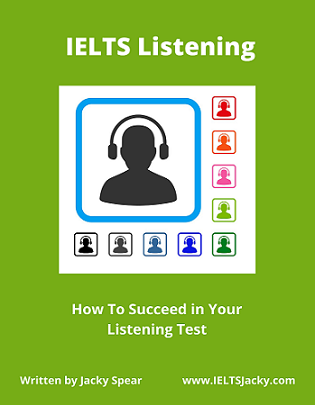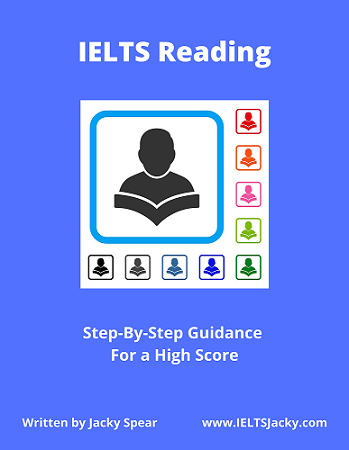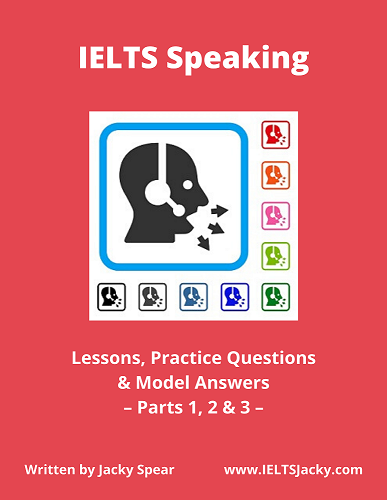IELTS
Listening Test Practice
Summary
Completion
IELTS Listening test practice is an essential part of your preparation
for exam day. This lesson shows you how to answer summary completion questions,
one of the ten different types of questions you could get in your test.
Whilst not the most common type of Listening question, they do sometimes come up so you need to understand them in case you do get one.
The lesson includes:
- Sample questions
- Strategy & tips
- Practice question
- Answers
- Vocabulary
We’ll start with the definition of a summary in case you're unsure of the meaning of the word.
Summary – a short, clear description that gives the main facts or ideas about something
For summary completion questions, you'll be given a summary of the recording. The recording will typically be a monologue on an academic subject such as a lecture on the Amazon rainforest or the Pyramids at Giza. There will be words missing from the summary which you must fill in.
This type of question is most likely to come up in Section 4, the most challenging part of the test.
Here are two summary completion questions to show you what they look like. The first is from a past test paper and the second has been created specifically to teach you the strategy for answering them and to illustrate some tips.
IELTS Listening Test Practice – Sample 1

Source: Cambridge English test paper
IELTS Listening Test Practice – Sample 2
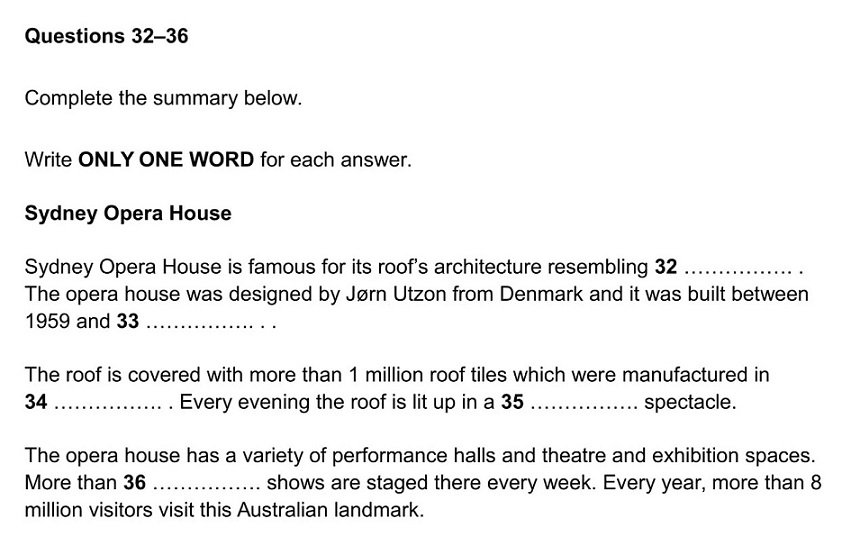
We’ll be
using this second example for some IELTS Listening test practice after we’ve looked at the
strategy and tips.
Strategy & Tips
You will have a short time to prepare before the speakers begin talking. Use this time to familiarise yourself with the question and focus your mind on what you need to listen out for.
1) Read the instructions
Read the instructions
carefully, paying particular attention to how many words you are allowed to
write for the answer as this does vary.
The instructions for our sample question state that you must,
Write ONLY ONE WORD for each answer.
The instructions for the Caveman Diet question, on the other hand, state that you must,
Write NO MORE THAN TWO WORDS for each answer.
If you write more than the number of words required, your answer will be marked incorrect even if the information you give is correct.
2) Look for a title
Not every
question will have a title but if there is one, it will tell you the context of the
question. This will help you to understand the question and give you a big clue
as to what sort of information will be contained in the recording.
Both our sample questions have titles. These are:
Origins of the Caveman Diet
Sydney Opera House
3) Answer order
The answers will come in the
same order in the recording as they are listed in the question so, for this question,
you will hear answer 32 first, then answer 33 and so on. This makes it easier
to pick out the answers than if they were in a random order.
4) Predict
the answers
Try to predict what the answers might be. This will focus your mind on what to listen out for in the recording.
Occasionally, you’ll be able to predict the actual word but mostly it’s one or more of these things that you’ll be able to determine:
- The type of information required, e.g. name of a person, place name, number, date.
- The type of word required, e.g. noun, adjective, verb.
Any clues you
can get will help you to understand the audio and identify the information
needed for the answers.
Have a go at predicting some of the answers in our summary completion practice question. There are 5 answers to fill in, 32–36. Then have a look at my predictions below.
Here’s the summary with the missing words.
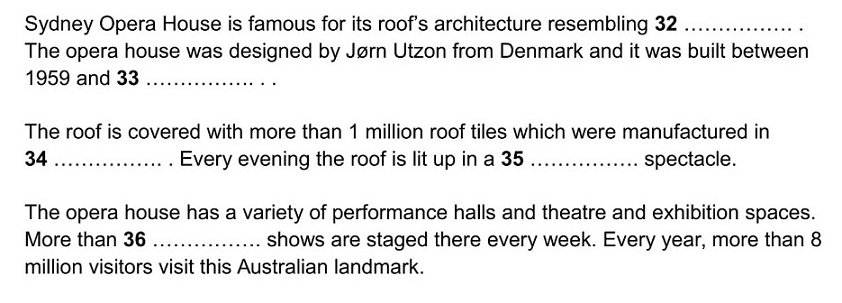
Predictions:
32 – a noun
33 – a date
34 – a place name
35 – an adjective
36 – a number
You can see that just a few seconds spend doing this can give you a lot of information about what you need to listen for in the recording. This will greatly improve your chances of identifying the correct answers.
5) Synonyms and paraphrasing
Synonyms and paraphrasing
will be used extensively in the recording. So, you will not only be listening
for the exact words that are used in the summary but also, different words and
phrases that have the same meaning.
In your preparation time, scan the summary and underline key words that are likely to be replaced by synonyms. These will be words immediately before and possibly straight after the missing word(s). Then, quickly think of words that might be used instead.
I’ve underlined some
important key words in our practice question. Can you think of some synonyms for
them?
Sydney Opera
House is famous for its roof’s architecture resembling 32 ………. . The opera house was
designed by Jørn Utzon from Denmark and it was built between 1959 and 33 ……………. . .
The roof is covered with more than 1 million roof tiles which were manufactured in 34 ……………. . Every evening the roof is lit up in a 35 ……………. spectacle.
The opera house has a variety of performance halls and theatre and exhibition spaces. More than 36 ……………. shows are staged there every week. Every year, more than 8 million visitors visit this Australian landmark.
We’ll look at the synonyms and paraphrasing that have been used in this question when we review the answers.
6) Problematic vocabulary
There are 6 types of vocabulary that can cause particular problems for students and some of them are frequently used in summary completion questions. The 6 types are:
- Time
- Numbers
- Prices
- Dates
- Letters
- Addresses
You must be able to recognise them in speech and to write them correctly in your answers.
I’ve written a whole lesson on this topic, including 8 listening exercises to help you recognise & learn these types of vocabulary. Follow this link to the lesson: Vocabulary Lesson & Exercises
7) Watch out for distractors
The examiners may try and catch you out with distractors. A distractor is a word or a phrase that changes or corrects the original piece of information given. So, you may be given an answer and then have it taken away again.
Here are two sample sentences containing distractors. I’ve highlighted the relevant words.
- The venue is most famous for its operatic performances but pop concerts are equally as popular today.
- The cost to build Sydney Opera House was estimated at $7 million. However, the final bill came to $102 million and it was largely paid for by a State Lottery.
The use of ‘but’ and ‘however’ are particularly common distractors but there are many different words and phrases that can be used to change or correct a piece of information so be alert for them.
8) Guess if necessary
My final tip is to never leave a blank space on the answer sheet. If you miss an answer, take an educated guess. This gives you at least some chance of getting it right. Don’t stress about a missed answer or it will affect your ability to answer the next set of questions. Just make your choice and move on.
Practice Activity
It’s now time for you to practice using this strategy on our sample question. Here it is again.
IELTS Listening Test Practice Question

Listen to this recording and identify the missing words in the summary. Refer back to the strategy as you need to and keep the predictions in mind. As you’re listening, remind yourself that you are not looking for the exact words as in the question but the same meaning.
When you’ve completed the practice activity, go through the answers below.
IELTS Listening Test Practice – Summary Completion Recording
Answers
Here are the correct answers:
Answers:
32
sails
33 1973
34 Sweden
35 colourful
36 40
We’ll now look at them
in context and examine the language that has
been used, especially synonyms and paraphrasing.
Answer 32: sails
Here’s the first summary sentence with a word missing followed by the section of the recording the answer appears in:
Summary:
Sydney Opera House is famous for its roof’s architecture resembling 32 …………... .
Recording:
Its unique roof design, which looks like a series of gleaming white sails, makes it one of the most-photographed buildings in the world.
Synonyms used:
roof’s architecture à roof design
resembling à looks like
Answer 33: 1973
Summary:
The opera house was designed by Jørn Utzon from Denmark and it was built
between 1959 and 33 …………….. .
Recording:
This was won by Danish architect Jørn Utzon. Construction began in 1959 but it was fourteen years later in 1973 that it was completed.
Synonyms / paraphrasing used:
built between à construction began ……... was completed
Answer 34: Sweden
Summary:
The roof is covered with more than 1 million roof tiles which
were manufactured in 34 …………….
.
Recording:
The
roof has over a million tiles, made in Sweden, covering its surface.
Synonyms used:
more than à over
manufactured à made in
‘Sweden’ is a proper noun so must start with a capital letter. If you don’t use a capital, your answer will be marked wrong.
If you're concerned that you'll forget, write all your answers for the Listening test in capital letters.
Answer 35: colourful
Summary:
Every evening the roof is lit up in a 35 ……………. spectacle.
Recording:
As
evening falls, these are illuminated to create a colourful display.
Synonyms used:
lit up à illuminated
spectacle à display
Answer 36: 40
Summary:
More than 36 ……………. shows are staged there every week.
Recording:
Remarkably, in excess of 40 performances take place each week.
Synonyms used:
more than à in excess
shows à performances
are staged à take place
Take extra care with numbers, especially tens and teens numbers. These sound very similar and are easily confused, e.g. 40 and 14.
For more help with such vocabulary, study the lesson on problematic vocabulary that I mentioned above. Here is the link again: Vocabulary Lesson & Exercises
I hope you’ve found this IELTS Listening test practice helpful. Now practice using this strategy with summary completion questions from past papers. It’s only with practice that your skills will improve and you’ll get the score you need in your test.
You'll find lessons on how to answer other types of Listening questions in the menu below.
Want to watch & listen to this lesson?
Click on this video.
IELTS Listening – All Lessons
IELTS Listening Test – Understand the format & question types. Know what skills are assessed. Also, discover 3 important marking tips.
Listening Strategies – Learn 3 essential listening strategies – question analysis, answer prediction & how to use keyword clues.
Listening Skills – Learn the 4 key listening skills needed for a high score highly. Examples from real questions.
Listening Exercises – 8 listening exercises to help you recognise & learn vocabulary for 6 common topics – time, numbers, prices, dates, letter names & addresses.
The 10 Question Types – Examples of all 10 types of Listening questions. Learn how to recognise & understand them. Links to 10 step-by-step lessons.
Listening Tips – Top 10 tips to bring you success in your Listening test. Essential information you need to know to achieve a high score.
How to Improve Your Listening Skills – 6 simple strategies essential for achieving a high score in the test.
Listening Practice – 4 practice techniques to develop your listening skills
Map & Plan Vocabulary – Learn the vocabulary you need for your test. 5 maps & plans with sample sentences containing common vocabulary of location & direction.
Listening Practice Samples – Short activities to improve your listening skills & help you learn topic vocabulary.
Genuine Full Practice Tests:
The 10 Question Types
Click the links below to learn how to answer each type of question.
All these lessons include IELTS Listening test practice questions.



